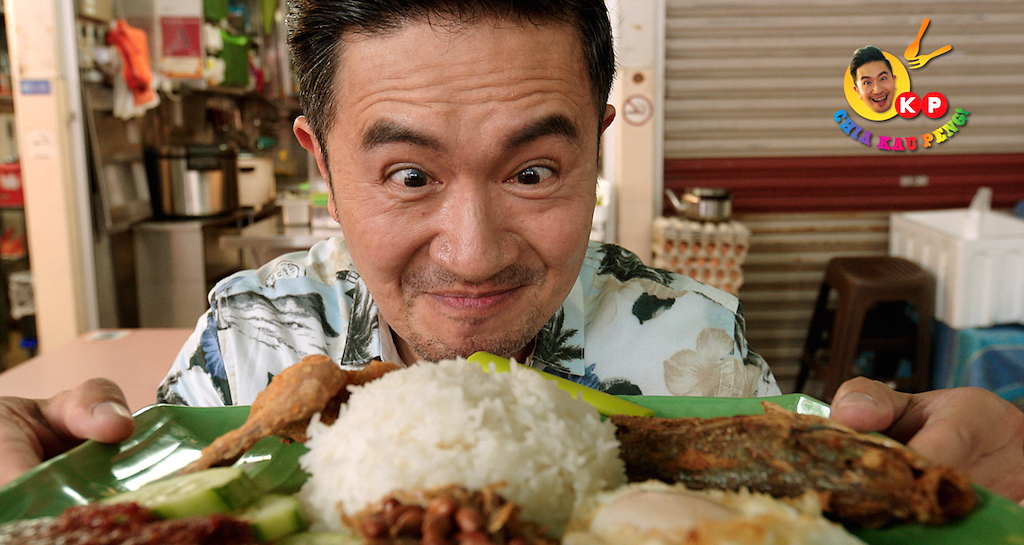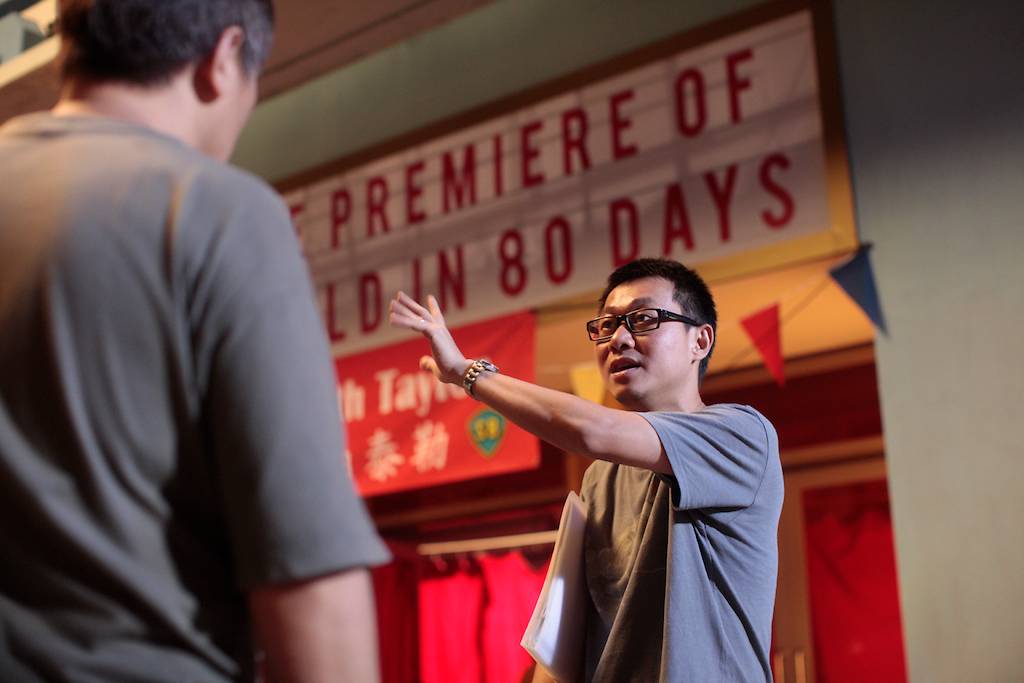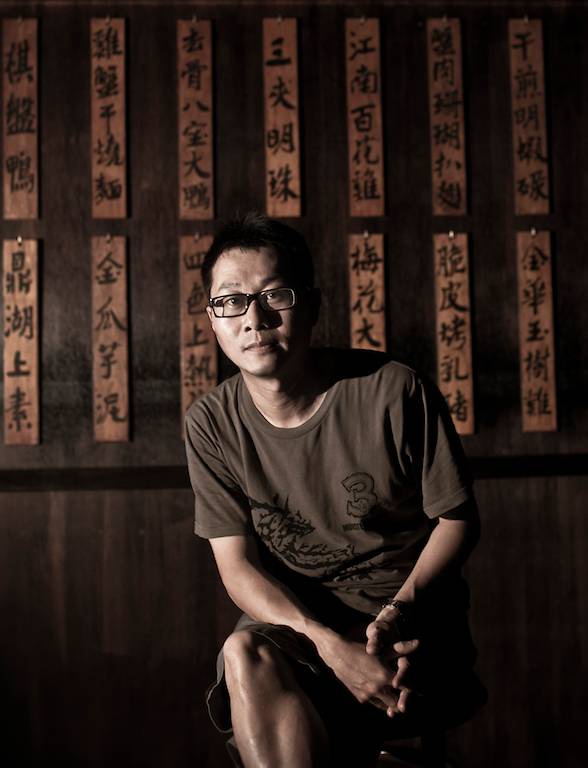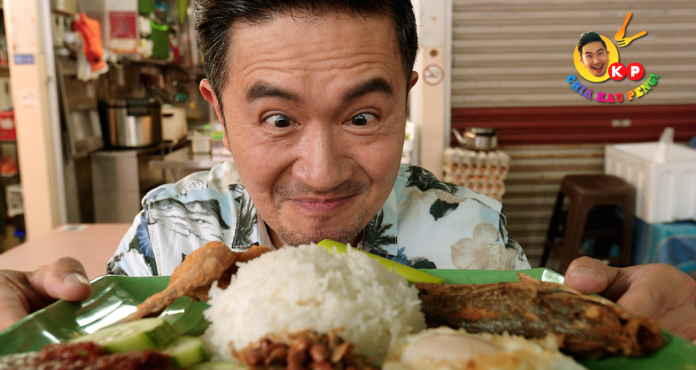SINGAPORE: “It’s really too early to tell,” says award-winning filmmaker Kelvin Tong when I ask him what he thinks constitutes national identity.
During a week when Singaporeans are celebrating National Day, he is doing a series of interviews publicising his upcoming film Republic of Food, in which food is one of the defining elements of the Singaporean identity.
The 46-year-old’s slight physique belies his accomplishments as a filmmaker.
Before we discuss the larger issues associated with his work, he explains how his interest in theatre and film making began in his secondary school days.
But in university, he studied law.
“There weren’t any film-related courses then and I wasn’t ready to go abroad. So I did what a lot of my peers in the creative line did. We studied law, because we were all humanities students,” he says.
After a short stint at a law firm, his love for writing returned to haunt him and he took on a job as a film critic. This soon led to taking a leap to make a movie of his own.
He made a short film, Moveable Feast, in 1996. His first feature film, was “a motorcycle kung-fu love story”, titled Eating Air.
To listen to the full interview, click here.
More recently, he’s been known for making horror films such as The Maid, which broke box office records in 2005, making S$700,000 in its opening weekend. It also won the Asian Award at the European Fantastic Film Festivals Federation.
In 2006, he embarked on a co-production entitled Love Story with Hong Kong’s Focus Films. Tong won the Best Director Award at the Singapore International Film Festival for the film.
In 2014, he became the first Singaporean director to helm a Hollywood film when he started shooting The Faith of Anna Waters.
As he sits down with me to talk about Republic of Food, delving into the deeper issues related to this film and his larger body of work seems inevitable.
Throughout, he maintains his boyish charm and good-natured manner, even while describing the challenges of his career and discussing xenophobia and national identity in Singapore.
IDENTITY IS CEMENTED BY ADVERSITIES
When I put it to him that it seems superficial to define ourselves only by our cuisine, he first begs to differ.
“I think we have managed to capture the kind of power that food has over our memories, and between our past and the things we put in our mouth.”
But he soon admits that there needs to be more to national identity.
“I think cultures need a very long gestation period. Being kiasu, kiasi. Are these meaningful? Maybe, in a caricature-ish way but I think to say our identity is such like the French or the Japanese, I think our story needs to unfold a lot more.”
He adds that he feels national identities are “cemented by adversities”.
“Our very first big look at ourselves in a cracked mirror was of course Japanese occupation, but back then, ours was a Malayan identity. And in fact, a lot of people didn’t feel Malayan, they felt like they were just here to work and after that they’ll go back to China, or they’ll go back to India. So if you look from 1965 onwards, I think we’ve had it very, very good. There were the race riots, there were moments of difficulty, but I think we need a longer road, we need a bumpier road, for what I think truly our national traits to emerge. I really do think it’s too early to tell.”
However, he reiterates that food has “a certain universality” as depicted in Republic of Food.

Actor, Adrian Pang in Republic of Food. (Photo: Boku Films)
The movie, produced by Tong’s Boku Films and supported by the Ministry of Communications and Information (MCI) stars Adrian Pang and Yeo Yann Yann as a couple living in a dystopia where a food-borne virus renders everyone’s favourite dishes banned.
It will be screened at selected Cathay cinemas from Aug 16.
The inspiration for the film came to Mr Tong when he served as a mentor to film-makers on MCI’s Project Lapis Sagu short film competition which was aimed at creating work that looked at cohesion between Singaporeans and immigrants and new citizens.
When I ask if it might be perceived as Government propaganda, he says he thinks of it more as a collaboration.
“Did they control the film? Did they censor the film? Did they tell me what to shoot and what not to shoot? No. I had carte blanche. As a filmmaker, I always have final cut.”
Amid celebrating food as identity, it explores our diverse multi-ethnic community from a refreshing perspective.
XENOPHOBIA IN A CHANGING SINGAPORE
“Adrian Pang’s character is part of this underground food club, which he doesn’t want anybody to know about. But the two foreigners he works with stumble onto that secret and they basically worm their way into that club. For a xenophobe like him, that’s the last straw.
“The film doesn’t mean to point fingers and say xenophobia is a bad thing. It’s actually a very understandable thing. But the film doesn’t attempt to solve anything. It aims to open up the ground to look at some of these behaviours and get people thinking.”
For Mr Tong, the film is also meant to address the changing demographics of Singapore.
“I think the people going into the cinemas have changed. So you can’t count on just good old Singaporeans going into cinemas anymore because the new citizen from China or India is part of this fabric now. So I was reflecting on this sort of change that I was feeling.
“I think locals also forget that part of our identity includes the fact that we were all different when we came. If you look at Singapore circa 1870, 1890, boatloads of people were coming on a daily basis. In fact I think that transformation of Singapore was even more dramatic than what we’re seeing now. I think it is part of our identity to be open. We’ve always been an open society. In fact, ask economists and they’ll say that actually is the reason for our success.”
Our lack of a firm identity, he believes, has also contributed to Singaporeans being harsher when judging local work and only really taking notice after the work has received accolades overseas.
“Familiarity breeds a certain amount of contempt. Singaporeans will always be tough on Singaporeans and I’m used to it actually. I don’t necessarily accept it, but I don’t get angsty about it.
“It’s because our identity is still in a state of flux. Don’t forget because we’re such an open society and so many of the products we use, including ingredients for food, are imported. Till our identity firms up, there will always be this instinctive feeling that our work can’t be that good. It comes from insecurity. It can’t be hurried. It will have to take many more local talents to make it for this to change perhaps.”

“I don’t feel motivated to use cinema as a pulpit. I’m attracted to stories,” says Kelvin Tong. (Photo: Boku Films)
GLAD HE NEVER WENT TO FILM SCHOOL
Life as an aspiring filmmaker was not always easy and Tong has had his share of uncertainties.
“I thought for the longest time, the closest I could get to cinema was to write about it and I was happy writing about it. It was about the third year of my time as a film critic that Jack Neo made Money No Enough. That film moved me a lot because not only did I see Singapore on the big screen, I heard Singapore on the big screen. And I think most importantly, it showed that you could make a Singapore film and not fall fully flat on your face.”
At that point he applied to go to film school in the US and been accepted, but because the opportunity presented itself and he had some savings, he decided to make Eating Air instead.
“That film effectively was my film school.That was how I learnt about the art.”
In fact, he says he is glad he never went to formal film school.
“This is going to sound terrible, but in the course of my work, I do meet a lot of young people and I meet a lot of young people who come from film schools. I generally find that film schools can ironically act as a set of blinders. I think film as a technique can be learnt. But I think if you look at film as a point of view, you might be better off spending the time driving a taxi or being a yoga instructor. You might meet more people and get better stories. When in film school, you just read about films, you just learn about films. But it’s very myopic in that sense because a film can’t be about other films.”
I ask him which of his life experiences have informed his work. His parents who owned a little toy store had something to do with it.
“They were essentially shop keepers, so they were really busy. And I think short of making sure that like we weren’t playing with heroin or knives at home, they pretty much left me and my siblings to do what we wanted. I went to Victoria School and in those days, in schools there was more diversity in terms of socio-economic mix. For example, there was a boy whose father drove him to school in a big BMW, but next to you there is also a boy that tends to come late, because his dad drives a cab. So you had that kind of vibrancy.”
He credits his National Service stint as being instrumental in exposing him to people from different walks of life “whose stories have got that little ring of authenticity”.
“My work comes from all these bits and pieces of Singapore that I know.”
To him, film is simply about stories even though some have wondered whether there are political overtones in some of his work. For instance, does his latest dystopian comedy say something about the political establishment?
“I’m not a political filmmaker. I don’t feel motivated to use cinema as a pulpit. I don’t see films as a sort of a broadcast system or a soapbox. I just don’t, I’m attracted to stories. I think it’s about the human condition. It’s about love, drama, relationships.”
FILMMAKERS IN SINGAPORE “HAVE IT VERY, VERY GOOD”
Just like any other filmmaker, he admits that money is never enough, but over the years, he has managed to garner regional investors.
His horror films were in a way designed to ensure survival.
“Horror films fit really tiny budgets. Nobody ever complains that horror films are too dark because the filmmakers couldn’t afford lighting. There is also very, very little dialogue in horror films. So you won’t annoy audiences with subtitles, especially if they watch it in a foreign land. And I think fear is something that is very, very basic so it is very easily translatable. This is positive for the business side of things and would allow me to survive and make more films.”
But for him, film projects don’t begin with monetary calculations.
“The thought process is that there is this idea that I like, then I look at the genre, then we look at the kind of returns that this film is likely to make. If it is not as commercially viable, then we should find a way to write the script in such a clever way that we can make it for a lot less money. The money side comes later. It is an execution thing. It is not a decision thing.
“I think if you look at someone like Eric Khoo, one of the things that I really, really admire about him is that he never makes a film for more than S$500,000. That’s an amount that even some kid just fresh out of film school would reject, but Eric Khoo does that consistently. So I don’t think budget per se makes a film industry or makes a film. I think the stories and the passion is equally important.”
But he admits that money can be a determining factor in success and the lack of it could disadvantage Singaporean filmmakers.
“You’re going up against the forces of very talented filmmaking entities. Hollywood has made this a science. If you look at something like Pixar. The kind of resources that they apply to crafting their stories, to creating that product, I don’t think it is realistic to take them on consistently. We don’t have the critical mass, we don’t have that kind of financial muscularity.”
His own investors are varied.
“Sometimes it will be either a distribution company that actually takes a stake in the film, or it could be say, be a talent agency. Instead of paying us the full amount for the cast, maybe they take equity. So, we try to find ways to collaborate in that sense.”
While other filmmakers bemoan the lack of state funding, he feels differently. He mentions the Singapore Film Commission’s support several times.
“I think we, filmmakers in Singapore have it very, very good already. I think if you go to a lot of other countries where people have amazing stories to tell, basically the government’s not interested in the film industry and the businessmen would rather like plough their money into property.”

“I hope I’ve made them laugh, I hope I’ve scared them, made them cry. I hope I’ve done all that for audiences with a Singapore story,” says Kelvin Tong. (Photo: Boku Films)
“CHURLISH” TO WANT STATE FUNDING, THEN COMPLAIN ABOUT IT
As we talk more about state funding, he reveals that his view on recent instances of state funding being pulled from certain book projects because they challenged established narratives of history is “realistic”.
“If you really want to be independent of influence or censorship, then don’t take the funding. I think it’s churlish to want it, then complain about it.”
However, I point out that artists who complain do so as a matter of principle. Shouldn’t taxpayers’ money be used to fund a variety of work rather than just work that supports the established narrative?
“I’m not saying that censorship is desirable. But censorship is inevitable and it’s not unique to Singapore. Every society practices censorship, simply because I don’t think the freedom to express whatever view will actually lead to eventual happiness because there are a lot of conflicting views and some views can hurt. And I do think every society arrives at its own balance of what do we allow, what do we not allow.
“Are the parameters too narrow? I’m not sure, and I’ll never be sure. But I think every time a work comes up and it causes a certain reaction, then we see where the parameter is drawn, and then it’s up to the arts community and even members at large to push back to weigh in with their opinions. You may not be able to push the parameter back this time round but simply through the views that people put forward in a rational way, I do think the powers that be enforce the parameters on our behalf.
He believes it is a “conversation”, rather than a “pugilistic duel”.
As Tong continues to make his mark in the world of film, and while he has several projects in the making including one on Singapore in the 1970s, most of all, he wants to have made a personal impact on his audience.
“The ability to look at Singapore from different genres and try to tell those stories from different angles is important to me. I hope I’ve made them laugh, I hope I’ve scared them, made them cry. I hope I’ve done all that for audiences with a Singapore story.”





